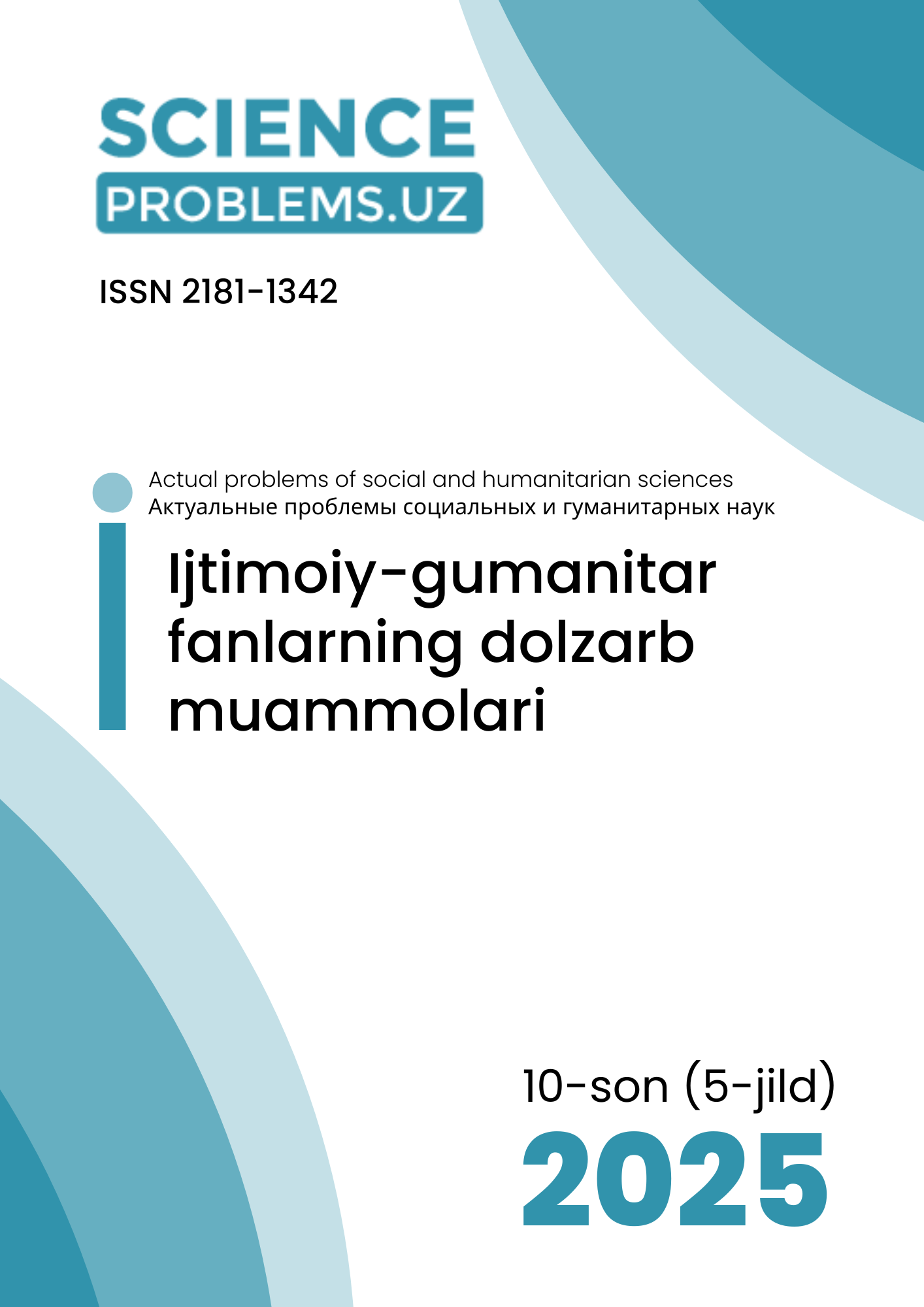GRAMMATICAL MEANS OF EXPRESSING PEJORATION IN UZBEK AND RUSSIAN LANGUAGES
DOI:
https://doi.org/10.47390/SPR1342V5I10Y2025N46Keywords:
pejoration, grammatical means, suffixes, diminutives, syntax, Russian language, Uzbek languageAbstract
This article explores the grammatical means through which pejoration is expressed in Russian and Uzbek languages. Pejoration, the process of expressing a negative or derogatory attitude, is linguistically manifested through various grammatical devices such as affixation, syntactic constructions, and morphological alterations. The study compares how Russian and Uzbek utilize these grammatical tools to convey pejorative meanings, highlighting both universal mechanisms and language-specific features. Special attention is paid to the role of affixes, diminutives, augmentatives, and syntactic patterns in creating pejorative nuances. The comparative analysis sheds light on cultural and linguistic particularities influencing pejoration in the two languages.
References
1. Belyaev O. Russian Word-Formation and Pejoratives. – Moscow: Linguistic Press, 2014.
2. Jakobson R. Linguistics and Poetics. In T. Sebeok (Ed.), Style in Language. – Cambridge. MA: MIT Press, 1960. – Pp. 350–377.
3. Karimov R. Morphology of the Uzbek Language. – Tashkent: National University Press, 2018.
4. Yusupov, D. Affixation in Uzbek and Its Expressive Functions. – Tashkent: Uzbek Academy of Sciences, 2020.
5. Zaitseva T. Pejoration and Expressivity in Russian. Journal of Slavic Linguistics, 24(2), 2016. – P.123-139.








